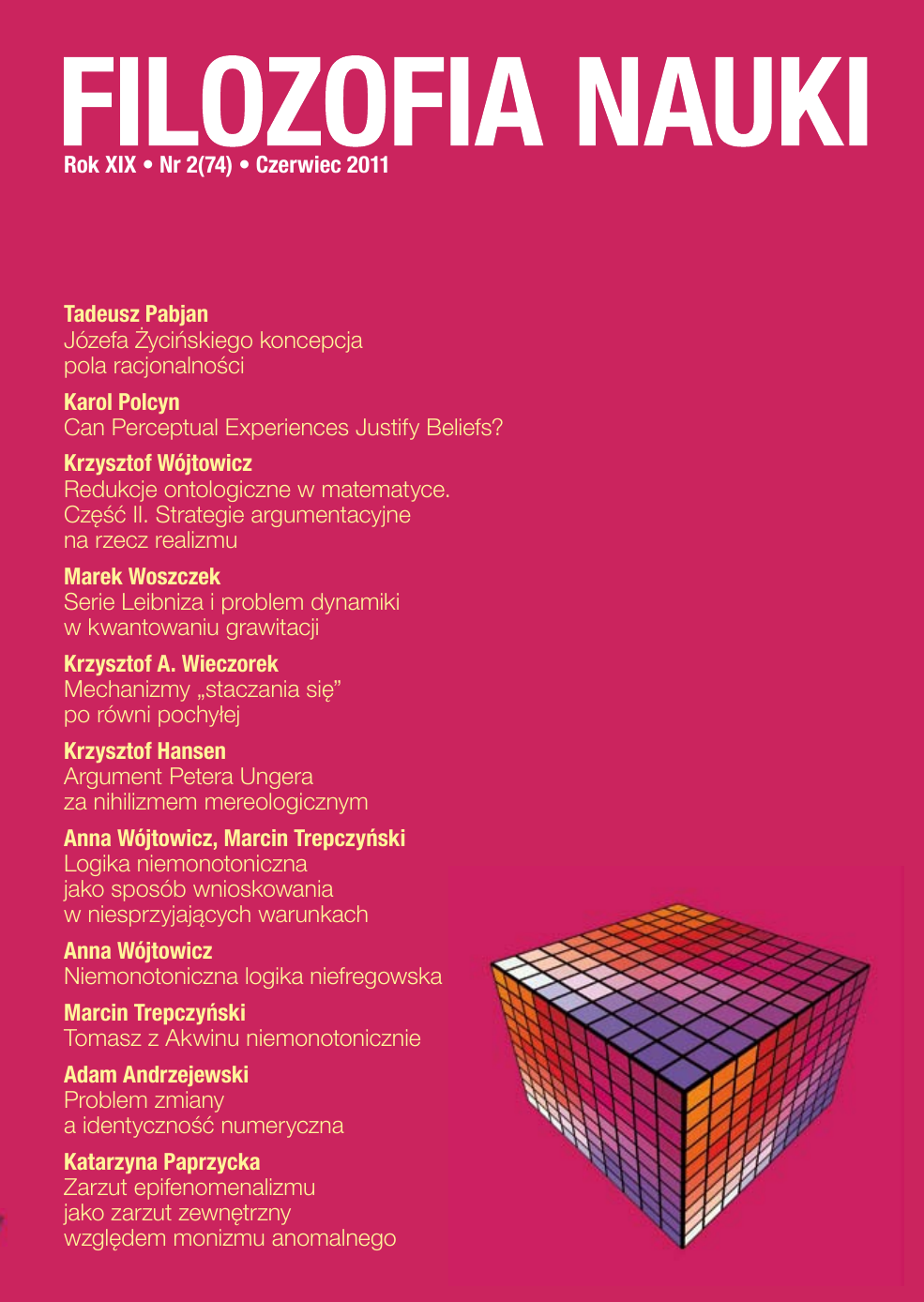The Mechanisms of Falling Down the Slippery Slope
Keywords:
argumentation, slippery slope, cognitive dissonance, precedent, decision makingAbstract
The empirical slippery slope arguments are arguments of the following form: if we take a first step A, as a result of a sequence of events, step N will necessarily or very likely follow; N is clearly not acceptable; therefore we must not take step A. Such arguments are often used in the discussions concerning abortion, assisted suicide, human gene therapy, free speech, decriminalizing marijuana, gun control and other ethical or social issues. In this article, I am trying to argue that although slippery slope arguments are not deductive, they need not to be considered as fallacies. There are some mechanisms that make the realization of the scenarios sketched in the slippery slope arguments much more probable than one could think. I analyze three different examples of such mechanisms. The first one originates in the psychological phenomenon of cognitive dissonance. The second is connected with the use of precedents. The third mechanism depends on so-called multi-peaked preferences which some people might have when they make their decisions.















 Filozofia Nauki/The Philosophy of Science | ISSN 1230-6894 | e-ISSN 2657-5868
Filozofia Nauki/The Philosophy of Science | ISSN 1230-6894 | e-ISSN 2657-5868